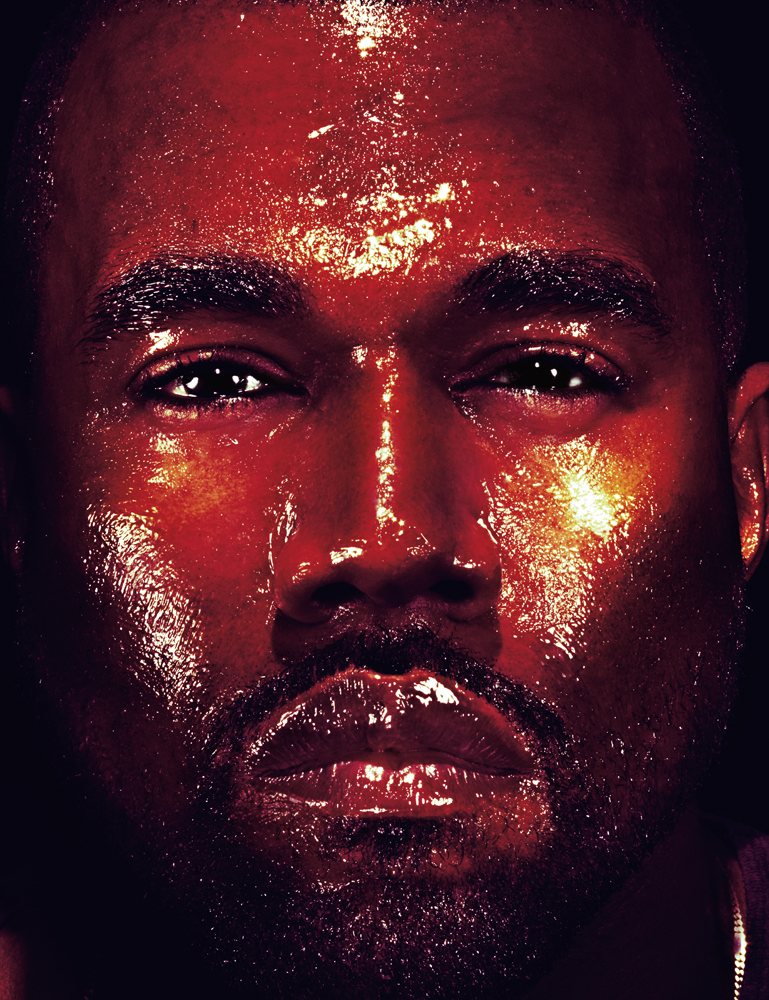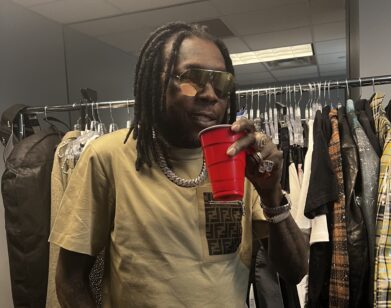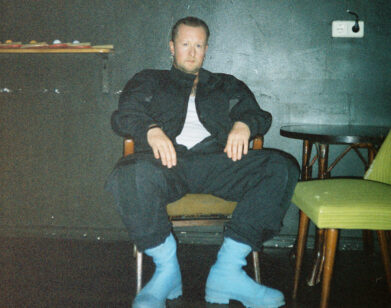The making of ‘Graduation’ transformed Old Kanye into New Kanye
Kanye West’s third album, Graduation, emerged during the chaos of 2007, with the Bush presidency limping to a close and the music industry reeling from online file-sharing. Bloghouse—a style of brash, sample-heavy dance music pioneered by the French label Ed Banger Records and popularized by networks of scrappy mp3 blogs—ruled the day, its rising stars mashing up rock, hip-hop, and electronic sounds. The sound reflected wider changes taking place across the music landscape—kids pursued kinetic party energy wherever it took them, mashing up sounds and disregarding conventions in the process.
West found himself tossed into the bloghouse maelstrom when Justice and Simian Mobile Disco’s buzzy collab track “We Are Your Friends” beat his opulent “Touch The Sky” clip for the best video award at the 2006 VMAs. He jumped on stage, grabbed the mic, and announced, “Fuck this! My thing cost a million dollars man … I had Pam Anderson, I was jumping across canyons and shit. If I don’t win, the award show loses … credibility.”
This moment provides a fascinating lens through which to perceive West’s mindset while making Graduation. “Touch The Sky,” with its stately Curtis Mayfield sample, was the consummate “Old Kanye” status symbol. It lost in an upset to avatars of the new landscape—a scruffy band of French party rats mashing up dance music with rock and roll motifs. West’s exposure to this culture influenced Graduation and spurred his evolution from the retro-leaning “Old Kanye … chop up the beats Kanye” to the avant-garde “new Kanye” of today.
“I think God had me not win that award for a reason,” he acknowledged in a 2007 interview with the Guardian, adding that the experience introduced him to Justice and the exciting scene they led.
Unlike its predecessors College Dropout and Late Registration, which rely almost entirely on West’s trademark chipmunk soul samples, Graduation folds in sounds from Steely Dan, Can, Laurel Canyon folk legend Laura Nyro, and most famously, Daft Punk. West had sampled rock guitars before, using The Doors’ “Five To One” for Jay-Z’s “Takeover,” but they’d never figured so prominently on one of his own albums. Meanwhile, the album’s two biggest singles—the Daft-Punk-sampling “Stronger” and “Flashing Lights”—incorporated dance music directly, with four-on-the-floor beats and spacey riffs. West abandoned his retro comfort zone, reacting to a new energy in the air. That’s not just a figure of speech—in a post on Genius, West’s former tour DJ and collaborator A-Trak recalls how the rapper first encountered Daft Punk on the radio.
“[‘Stronger’] sort of happened because Swizz Beats sampled [Daft Punk’s] ‘Technologic’ for that Busta Rhymes record, ‘Touch It,'” A-Trak recalls. “We were on tour in Europe in 2006, spending a lot of hours on the bus listening to the radio. Kanye heard ‘Touch It’ and thought that beat was cool. I said, ‘He just swooped up Daft Punk.’ And ‘Ye said, ‘Who?’ I just couldn’t believe that Kanye had never heard Daft Punk.”
West’s 2006 European tour dates kicked off during the summer, only a few weeks after the June VMAs. It’s easy to picture the rapper sitting on that bus, still smarting from his loss, eager to reclaim his throne. Perhaps he was primed to perceive how the techno beats crackling through the airwaves could serve as his vehicle for capturing the zeitgeist. Of course, such a direct line of causality between West losing to Justice and sampling “Harder, Better, Faster, Stronger” is pure conjecture. But Graduation’s dance-rock-rap collision undeniably mirrors the approach of the French electro duo and their acolytes. In order to keep ahead of the competition nipping at his heels, West had to become a true sonic omnivore.
A-Trak argues as much, pointing out that “by the 2000s, culture accelerated so much. You couldn’t think in terms of authorship. The whole concept of authorship doesn’t exist anymore. I think Kanye had a very current view, like, ‘If it’s dope, I’ll flip it, and put my stamp on it.'”
In short, he’s calling Graduation a bloghouse record. Not so much in terms of sound (though West has worked with Daft Punk and Ed Banger affiliate Brodinski since), but rather as an ethos, the way it swallows cutting-edge ideas and samples whole. I’d argue that West hasn’t stopped making bloghouse records. The lawless mp3 blog aesthetic of the mid-00s—an era defined by internet-addled kids’ smash-and-grab approach to genres and sounds—lives on in the overflowing production credits of Yeezus and The Life of Pablo.
“I wanted to cross genres and show people how we could still express ourselves with something fresh. That’s what hip-hop’s all about,” said the rapper in 2008. Then he walked off the Grammy’s stage, Graduation‘s award for Best Rap Album in his hand.







